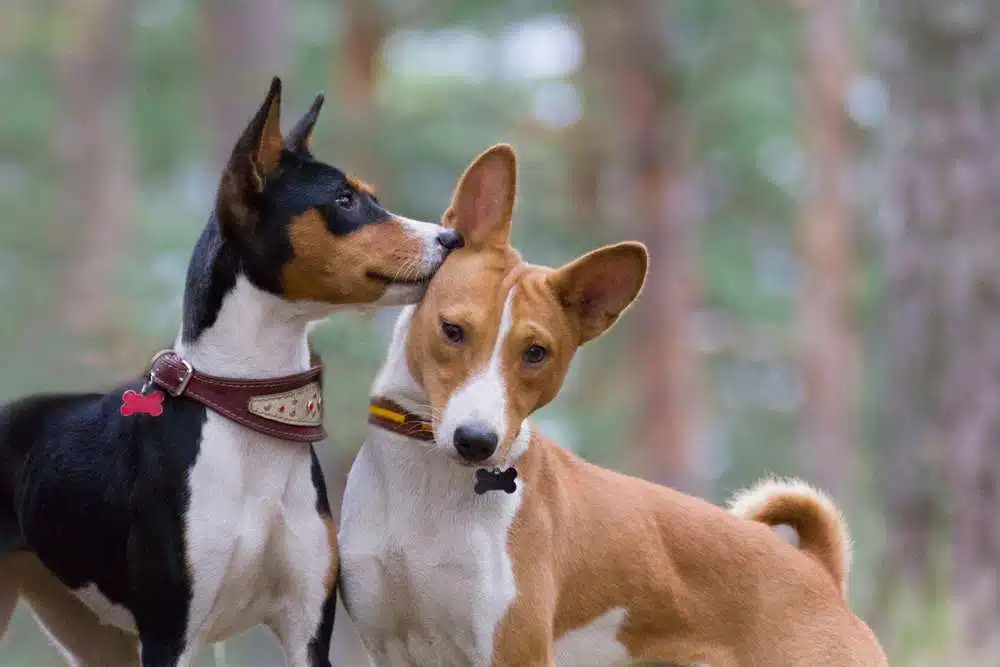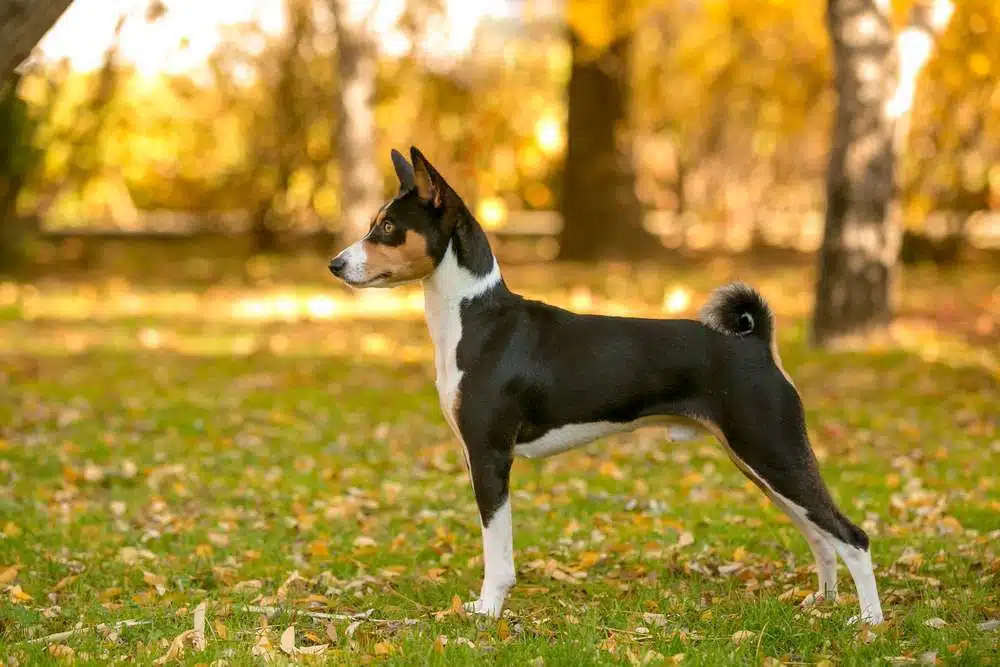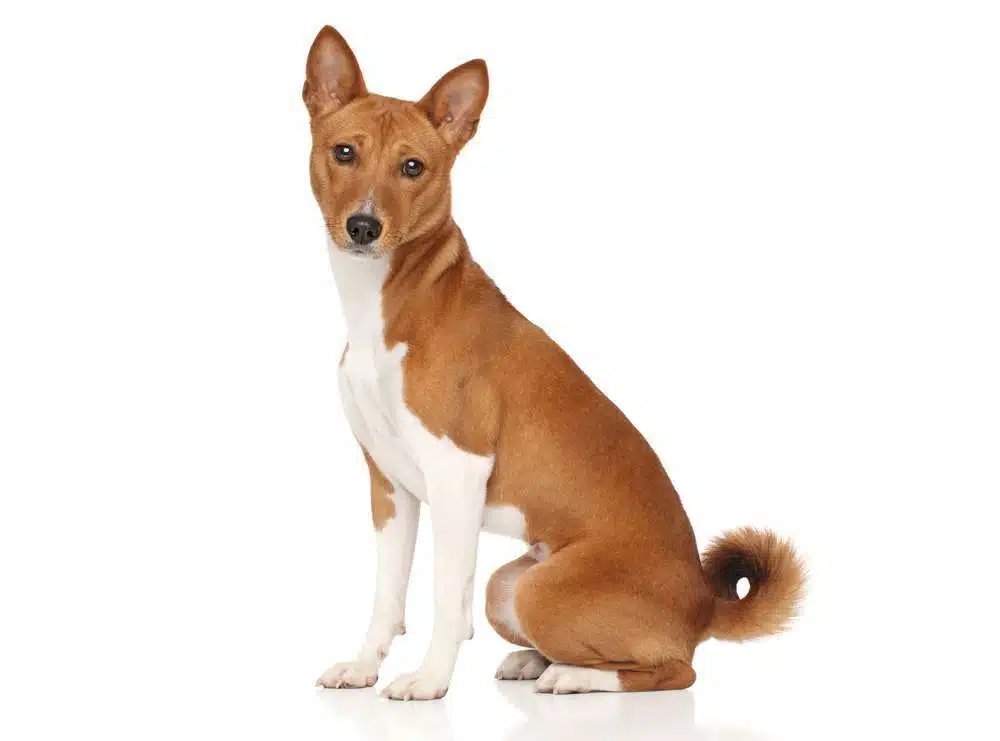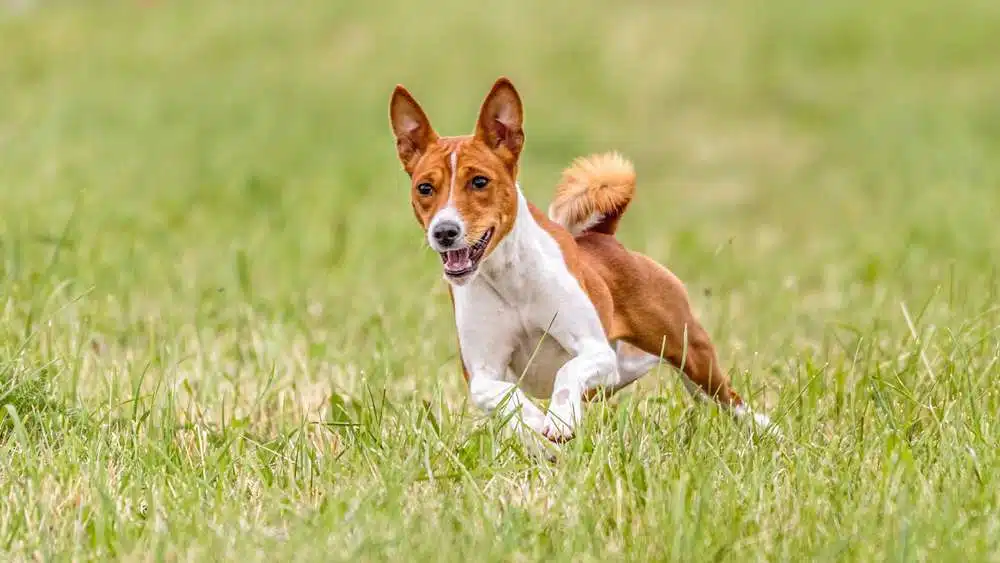Basenji

The Basenji is a dog of ancient origins who was first bred as a hunting dog in Africa. He has short, sleek fur, pointy ears, and a brain always working judging by the wrinkles on his forehead. More like cats than dogs in some ways, Basenjis are curious creatures that are also very intelligent and independent. So if you’re thinking about getting one of these special pups, be sure to do your research first- they might not be the right pet for everyone despite their many awesome qualities!
If you own anything of value or hold sentimental items close to your heart, this dog is not for you. Basenji owners often share stories about the damage their dogs have caused. They are also cunning and full of energy with a mind entirely of their own– meaning you must be intelligent than them or, at the very least, more sly.
The Basenji is an excellent watchdog, and while he might be known as the African Barkless Dog, make no mistake–he’s far from silent. In fact, he crows, growls, screams chortles and yodels to communicate. You can actually hear some of these sounds on the Basenji Club of America website. And because of his fun-loving nature overall, the Basenji can be a good choice for families with older children who will handle him well.
A good way to keep your Basenji dog happy is by tiring him out through exercise. This can be done by going on long walks with a leash or letting him run in an area that’s safe and free from traffic. Other activities such as agility, lure coursing, obedience, rally and tracking will also help to provide physical and mental stimulation for your dog. If he isn’t given enough of these kinds of activities, he may come up with his own destructive fun instead.
The Basenji should never be left without a physical fence as they have high prey drive and will chase small animals. This also applies to underground electronic fences; the Basenji is very willful and determined, so these won’t keep him contained either.
Training the self-sufficient Basenji requires fortitude, tenacity and consistency. Keep instructional periods short and lively, and don’t be surprised if he deviates from commands or outfoxes you in other ways. The (in)famous book The Intelligence of Dogs by Stanley Coren ranks the breed as the second most difficult to train, behind only the Afghan Hound. For optimal results, use positive reinforcement techniques such as encouragement, amusement, and food rewards.
The Basenji has an odorless coat that only needs to be brushed once a week with a normal brush to get rid of dead hair. In addition, trim the nails when needed, brush the teeth regularly, and keep the ears clean and dry weekly to prevent infections.
The Basenji should live indoors because he is a companion dog. If you leave him in the backyard with little human interaction, he may become destructive.
- Group AKC Hound
- Origin Congo
- Size Small, Medium
- Weight 22 to 24 pounds
- Coat Length Short
- Coat Type Smooth
- Colors Black & White, Black Tan & White, Brindle & White, Red & White
- Other Names Congo Dog, Congo Terrier, African Bush Dog, African Barkless Dog, Ango Angari, Zande Dog
- Temperament Affectionate, Alert, Curious, Energetic, Playful, Intelligent




